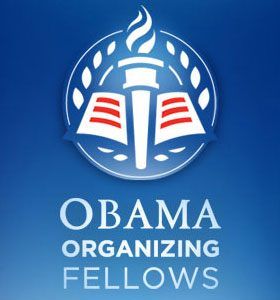Tuesday, August 6, 2013
Civil Rights Attorney Julius Chambers Dies
There’s a scene in the classic movie “To Kill a Mockingbird” in which the black Rev. Sykes is sitting in the segregated balcony of the courthouse at the end of the trial. When Atticus Finch is leaving the courtroom, Sykes rises, as do all the black people. He tells Finch’s tomboy daughter, Scout, who is sitting with the minister, to stand. She asks, “Why?”
“Because your father’s passing by,” Sykes replies.
All North Carolina should rise at the “passing” of Julius Chambers.
By Barlow Herget
Julius L. Chambers, 2012 AASCU Distinguished Alumnus Award Recipient
Pioneering civil rights lawyer Julius Chambers – a crusader for equality whose landmark cases led to
integrating Charlotte-Mecklenburg schools – died late Friday after months of declining health.
Chambers, 76, a soft-spoken but tenacious and unflappable attorney, fought against racial and
employment discrimination to the end, said his law partners, James Ferguson and Geraldine Sumter, at
a news conference Saturday.
“Our community and our nation has benefited tremendously from Mr. Chambers’ tireless efforts to
ensure that all people are treated equally,” Ferguson told reporters outside the Charlotte firm that
Chambers founded in 1964.
“He believed that regardless of one’s position, status, race, creed, color, religion or gender, everyone has
an obligation to ensure equality for all.”
Over the years, his enemies set his law office on fire, bombed his Charlotte home and his car. They also
torched his father’s shop in his hometown of Mount Gilead.
Yet Chambers, who later served as chancellor at N.C. Central University in Durham, was never
vindictive. And he never quit.“The animosity toward him and his positions was just heavy and real. You could feel it,” said C.D. Spangler, former UNC president, who was elected to the school board in 1972 after Chambers had sued that board and won. “But he never let that change him personally. … He didn’t hate the people who hated him.”
The 1971 ruling in the Swann vs. the Charlotte-Mecklenburg Board of Education case mandated cross-
town busing to end segregation of local schools. It also highlighted the power of federal courts to
intervene when public school systems dawdled on their way to integration.
Chambers took eight cases to the U.S. Supreme Court – including the Swann case – and won every one.
“He was my personal hero,” said U.S. Rep. Mel Watt of Charlotte, who is President Barack Obama’s
nominee to lead the Federal Housing Finance Agency.
After Yale Law School, Watt had offers from firms around the country but returned to Charlotte in 1972
to practice law with Chambers.
“Chambers said, ‘You have an offer right here, and you can make an impact,’ ” Watt said in a 2007
interview. “ ‘Here you can help the people you grew up with. And rather than separating yourself from
them, you can bring them along with you.’ That was a compelling, powerfully persuasive argument.”
Setting a course
Julius LeVonne Chambers was born in Mount Gilead on Oct. 6, 1936. His father, William Chambers –
“Shine” to customers whose Model T Fords he had washed – owned a garage-general store near Mount
Gilead, 60 miles east of Charlotte.
His mother, Matilda, helped out in the store and raised their four children, including Julius and older
brother, Kenneth, a retired Charlotte obstetrician/gynecologist.
In 1949, 13-year-old Julius was looking forward to following his two older siblings to Laurinburg
Institute, a private school for blacks. But one April day, fighting back tears, William Chambers told his
son that the $2,000 he’d saved to send him to school was gone, thanks to a white customer whose 18-
wheeler Chambers had maintained and repaired for months, buying parts out of his own pocket.
That morning, the man had refused to pay the bill and jeered as he drove off with the rig. William
Chambers spent the afternoon going door to door, asking for help from the few white lawyers in town.
They all turned him away.
That was the day Julius Chambers vowed to study law.
Instead of Laurinburg Institute, he attended the all-black public high school in Troy, traveling 12 miles
each way in a cast-off bus from the white school. To supplement the primitive curriculum – students
had to kill and cut up hogs on the principal’s farm – he subscribed to the Book of the Month Club.
“It must have been like pouring water on a sponge,” said George Daly, who practiced briefly in
Chambers’ firm.
Young Chambers did more than keep his promise. He graduated summa cum laude from North
Carolina College in Durham, now N.C. Central, where he was president of the student body. After a
master’s in history from the University of Michigan, he entered the UNC Law School in Chapel Hill,
where, in 1962, he graduated first in his class of 100 and was the first black chosen editor of the North
Carolina Law Review.
At the year-end banquet at the segregated Chapel Hill Country Club, Chambers wasn’t invited.
He didn’t care, said Adam Stein of Chapel Hill, who later was the first white lawyer in Chambers’ firm.
“All sorts of things in society could have created anger and distraction,” Stein said. “But he just plowed
right through.”
After graduation, Chambers, married to Kannapolis native Vivian Giles, was appointed as a teaching
associate at Columbia University School of Law, where he also received a Master of Law in 1963.
Settling in Charlotte
A year later, he and Vivian arrived in Charlotte, where they set up a practice at 405 1/2 East Trade St. in
uptown Charlotte. In his first year, Chambers took on 35 school desegregation cases and 20 suits
charging discrimination in public accommodations. By 1972, the firm had 11 members, including five
whites. Forty percent of its 1,200 cases involved civil rights.
It didn’t take long for him to make headlines – and for his constant prodding for change to draw anger.
By 1965, shortly after Chambers opened his law office, Charlotte-Mecklenburg had partially integrated
some schools. But in January of that year, Chambers sued the school board to force total desegregation.
Days after Chambers filed the Swann suit, his car was bombed during a speaking engagement in New
Bern. As Chambers checked on the car, people in the audience poured into the street, asking, “What
are we going to do?” his partner Geraldine Sumter recalled.
“He said, ‘We’re going to go back inside and finish the meeting. There’s nothing we can do about that
car,’ ” she said. “His demeanor was always calm. He never got upset.”
That June, state Judge Braxton Craven ruled for the school board, concluding there’d been steady
progress toward desegregating schools. The case resurfaced in 1969, when federal Judge James
McMillan ordered CMS to desegregate through busing.Ultimately, Chambers’ lawsuit led to the 1971 Supreme Court ruling that allowed school districts to bus students to achieve racial balance.
Integrating Shrine Bowl
On Nov. 11, 1965, Chambers sued to integrate the annual Shrine Bowl, the yearly high school all-star
football game between players from North Carolina and South Carolina that until recent years was
played in Charlotte.Eight days later, sticks of dynamite blew up at Chambers’ home and the homes of three other prominent Charlotte civil rights leaders.
Chambers and his wife were home in bed when the dynamite blew out a window in the front bedroom.
“I threw up next to the house. I was angry,” he told the Observer recently. “I didn’t know who did it. I
didn’t know why they would do it. I had my ideas. We knew getting with the Shrine Bowl was going to
cause a lot of problems. And it did.”Chambers told the Observer he felt the Shrine Bowl lawsuit was one of his most important civil rights cases.
“We were able to reach a lot of parents, teachers, principals, who played very important roles in black
and white communities,” he said In or out of the courtroom, Chambers’ reserve, his physical compactness, enhanced by neatly cut suits and close-cropped hair, prompted the label “unflappable.”
“A lot of people were surprised to see Chambers in court,” said his partner James Ferguson. “Some
people expected him to be bombastic and always on the attack. Chambers never raised his voice. He
was always very low-key and very calm, and because of this approach, he disarmed the witness.”
John Gresham, a former law partner, said Chambers had a habit of playing with string or a rubber band,
often making a cat’s cradle, while interrogating a witness – lulling the witness into a false sense of
security.
Another tactic, Gresham said, was to start out asking innocuous questions that appeared to be aimed
at finding out very simple things about the company’s policies.
“You could see the witness relaxing and thinking, ‘This guy doesn’t even know how we operate.’ Then
Chambers would very carefully draw a circle around what he wanted to know, and as soon as he had
the loop closed, he would bore in, and you could see the witness thinking, ‘Oh, my God!’ ”
Though his words were few, Chambers’ lessons endured.
Once Chambers sent Watt to Lumberton in Robeson County to defend protestors charged with
resisting arrest and assaulting an officer.
“I get down there,” Watt said, “and I find that these are Native Americans who’d been carrying
tomahawks and demonstrating because they didn’t want to go to school with black kids.”
Back in Charlotte, a confused Watt asked Chambers: “Why in the world did you send me to Lumberton
to defend people who were against going to school with black kids?”
“Julius never looked up,” Watt recalled. He said, ‘Don’t you believe in the First Amendment? Don’t you
believe in free speech?’ ”
Returning to roots
In 1984, Chambers left Charlotte and his firm to become director of the NAACP Legal Defense and
Education Fund in New York.
Of that loss, former Observer editorial columnist Jack Claiborne wrote: “Losing a Julius Chambers … is
like losing a magnet, a force that helps energize the community.”
Chambers was the third LDF director, following Thurgood Marshall and Jack Greenberg.
He returned to North Carolina in 1993, first to the college where he earned his undergraduate degree
to serve as chancellor.
When Chambers arrived in Durham, the school was recovering from charges of financial
mismanagement. He found unsafe buildings that had not been maintained for years, and only one
endowed chair to attract top professors.
Chambers worked to raise the endowment from $1 million to $25 million by 1999. During his tenure,
the university increased the number of endowed chairs to 14.
He raised academic standards and millions in capital-improvement funds. And under his leadership, 80
percent of the faculty had doctoral degrees and the school built new buildings for education and social
work departments.
In 2001, Chambers returned to Charlotte and the law firm he founded. Again he became embroiled in a
desegregation fight after a group of white parents sued the school system, challenging busing and other
race-based policies.
“We’ve made a lot of progress, but I had hoped we would be much further on by now,” Chambers told
the Observer then. “We must continue to bring people together and break down the barrier of
segregation. In Charlotte, busing is still the only way to do that.”
They called him ‘Chambers’
On Saturday, his friends and former law partners at Ferguson, Chambers & Sumter said Chambers was
deeply concerned with recent legislation in North Carolina and around the country that had begun to
unravel his life’s work.
They were left with grief and fond memories of an unassuming man they simply called “Chambers.”
“He was too revered to call him Julius,” Ferguson said. “And it sounded too stuffy to call him ‘Mr.
Chambers.’
“So, for most of us, it was just ‘Chambers.’ ”
In 1999, while he was N.C. Central chancellor, Chambers was diagnosed with cancer – but underwent
treatment and it never returned.
Then in April, he suffered a heart attack.
Still, partner Geraldine Sumter said it was “a shock” when Chambers’ daughter, Judy, called Friday
night with news that Chambers had died.
His wife, Vivian, and mother, Matilda, died last year.
At the end, Sumter said Chambers’ body might have been frail, “but, oh my goodness, the mind was
still so sharp.”
She’d visit him and they’d talk about cases. “He’d say, ‘Hey, how’s Fergy (Ferguson) doing with that
case?’ Or ‘How about bringing me the file on this case?’ He never quit.”
The firm never gave him a retirement party.
“I’m not sure Chambers ever stopped practicing law,” Ferguson said. “We think he didn’t practice law
when he was in the hospital. But if he wasn’t actively practicing, he was concerning himself with people
whose rights were being trampled.
“With Chambers, you didn’t talk retirement – you talked about what’s next.”
Funeral arrangements were incomplete Saturday. Long & Son Mortuary Service is in charge. OBSERVER
STAFF WRITERS DAVID SCOTT AND GARY SCHWAB CONTRIBUTED.
Read more here: http://www.charlotteobserver.com/2013/08/04/4211103/civil-rights-leader-julius-
chambers.html#.Uf5V8rUNEJU.facebook#storylink=cpy
"Mr. Chambers was not the first lawyer of color to try to address the issues of equality," firm partner Geraldine Sumter said Saturday. "He would tell you he had people like Buddy Malone of Durham that he looked to, the Kennedys out of Winston-Salem. The thing that Mr. Chambers brought to that struggle was a very focused, determined attitude that things were going to change."
Julius Chambers: A Struggle for Equal Justice Through the Courts
Anthony D. Ross was homeless
Now attending Law School at North Carolina Central University.
















































